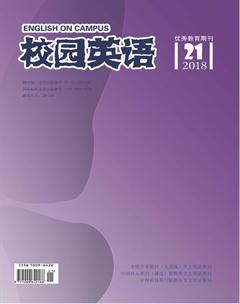The Opportunities and Challenges for the Internationalization of Chinese Language under the “Belt and Road” Initiative
【Abstract】The strategy of the “Belt and Road” Initiative keeps with the trend of the time, and brings China and other countries along the routes ample opportunities of economic, political and cultural exchanges. During its implementation, the spread of Chinese is essential and indispensable. This paper will propose some feasible suggestions by analyzing and examining the opportunities and challenges for the internationalization of Chinese language. The “Belt and Road” Initiative, whose full name is “Silk Road Economic Belt” and “21st Century Maritime Silk Road”, covers 65 countries in Asia-Pacific, Eurasia, Middle East, Africa, and South Pacific and serves as the economic corridor that stretches across several continents. Under the “Belt and Road” Initiative, the Chinese language spreads via the economic, political and cultural exchanges between China and other countries across the routes, and guarantees the smooth development and implementation of all policies that involve economy, politics and culture.
【Key words】Belt and Road; Internationalization of Chinese Language; Opportunities and challenges
【作者簡介】林煥章,山東省煙臺第二中學。
The Status Quo of Internationalization of Chinese Language
At present, Chinese is being learnt by more and more people worldwide, and the overseas spread of Chinese language is quite prosperous. In fact, starting in 1980s, the craze for Chinese language has been ever growing till the 21st century so much so that it seems that Chinese tends to evolve into a universal language. By 2004, there were no more than 30 million Chinese learners in the world except China. However, a decade later, this number has surged to 120 million.
The Advantages and Opportunities for the Internationalization of Chinese Language under the “Belt and Road” Initiative:
As the essence of the ancient Chinese culture, Confucianism has exerted profound influence not only in China, but also in North Korea, South Korea, Japan, Singapore and some other Southeast Asian countries. Moreover, as the sponsor of the “Belt and Road” Initiative, China is actively moving with the tide of globalization, and has built closer economic cooperation and trade ties with other countries. With the prosperous economic development, China stands out as the Economic Power in the world, which further impels other countries to pay much more attention to China and Chinese language as well.
Challenges for the Internationalization of Chinese Language
At present, the talent shortage is quite serious, regarding the relatively small amount of talents who are proficient at Chinese and other languages of countries along the routes. Till August, 2016, Malaysia is still short of 90, 000 Chinese teachers, and Indonesia 100, 000 Chinese teachers. On the other hand, the education of language talents mainly relies upon classroom learning in universities or overseas studies, and thus, is not quite comprehensive and variable. In addition, assuming that China with such an economic rise will certainly practice cultural exports by means of its dominant role in the globalization, some countries will show a lot of resistance against the local spread of Chinese.
Apparently, both opportunities and challenges exist in the internationalization of Chinese language. Here are some suggestions in the key fields for the spread of Chinese:
First, much more efforts should be made to accelerate the development of national higher education as well as the education of talents and increase the enrollment of teaching Chinese as a second language. Also, more attention should be paid to adjusting the languages courses to avoid excessive emphasis on grammar and instilling of culture and rather, focus on more creative teaching methods to enliven the teaching atmosphere and vivify the teaching contents. Meanwhile, greater efforts should be made to promote the education cooperation and development between China and other countries along the routes. Furthermore, the internationalization of Chinese language should not stick to its traditional teaching methods, but adopt more advanced network technologies to diversify the channels of communication of Chinese language. The recently developed online Confucius Institutes have received acclaim worldwide and is a good choice.
References:
[1]Ren Mengyi&Zhu; Ling&Chen; Guangping.SWOT analysis of the Internationalization of Chinese Language under the “Belt and Road” Initiative[J].Modern Business Trade Industry,2007(09).
——山東省濟寧市老年大學之歌

